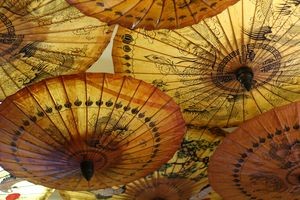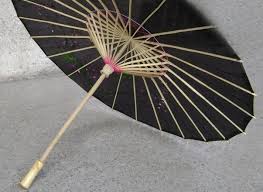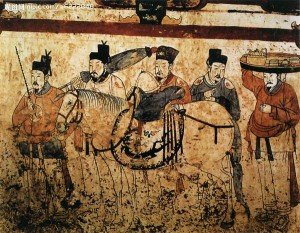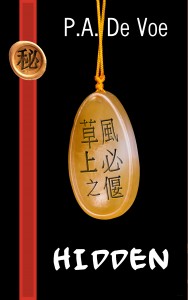It’s spring and very, very wet. Finally, after days of rain, we have sunshine for a couple of days before more rain. All of this rain makes me think of umbrellas. Obviously, they are a wonderful tool for walking outdoors on rainy days, but when we were in Taiwan many years ago, I also discovered how useful they were for creating a patch of shade in the hot, burning sun.
Umbrellas. According to Joseph Needham,[i] while umbrellas, as sun-shades, were known in Greece and Rome times, the collapsible mechanism we take for granted probably came from the Chinese.
How far back into Chinese history the umbrella goes varies a lot. Some claim it was first invented somewhere around 3000-3500 BC,[ii] but it certainly was around by the Han Dynasty (206 BC – 220 AD). Early on, umbrellas were made of paper and silk and were sun-shades. Because they were expensive, they were a status symbol of the upper classes and the royal family.
These early umbrellas had four parts: the head, handle, ribs, and shade. The frame was of mulberry bark and bamboo and the silk or paper covering became a canvas for works of art.
In time, the umbrella evol ved: First, the paper shades were covered with an oil to make them impermeable to rain and expanding their use. But the really remarkable thing about these early Chinese umbrellas was how they evolved from a fixed frame to a collapsible frame. These co
ved: First, the paper shades were covered with an oil to make them impermeable to rain and expanding their use. But the really remarkable thing about these early Chinese umbrellas was how they evolved from a fixed frame to a collapsible frame. These co llapsible umbrellas worked by means of sliding levers, pretty much the same as we use today.
llapsible umbrellas worked by means of sliding levers, pretty much the same as we use today.
The first indication that the Chinese umbrella could be collapsed was in 21 AD, during Wang Mang’s reign as the first and only emperor of the Xin Dynasty.[iii] This umbrella was to protect the Emperor as h e rode in his four-wheel, ceremonial carriage, so it was quite large. The mechanism was so new and innovative that it was a secret. Besides the collapsible frame, the handle had bendable joints, allowing it to be extended or withdrawn.
e rode in his four-wheel, ceremonial carriage, so it was quite large. The mechanism was so new and innovative that it was a secret. Besides the collapsible frame, the handle had bendable joints, allowing it to be extended or withdrawn.
Needham does go on to say that there is some evidence that the mechanism had been developed as early as the Zhou Dynasty (around 600-500 BC). If so, it was probably invented by a woman named Yun shih, the wife of an artisan.
Truly a remarkable history for our simple, and much-needed, umbrella! The next time you open up your umbrella think of its long past and its country of origin: Ancient China.
Pictures from:
en.people.cn/102774/8017371.htm;
http://www.infoniac.com/offbeat-news/the-most-important-inventions-of-ancient-china.html;
http://www.i-china.org/news.asp?type=15&id=819;
http://www.umbrellahistory.net/umbrella-history/chinese-umbrellas/.
References:
[i] Joseph Needham Science & Civilisation in China, Volume IV:2, pp. 70-71.
[ii] https://sites.google.com/site/ancientchineseinventions/Home/the-invention-of-the-umbrella; http://www.umbrellahistory.net/umbrella-history/chinese-umbrellas/; http://www.chinahighlights.com/travelguide/culture/paper-umbrella.htm.
[iii] Needham, ibid; http://www.smithsonianmag.com/history/emperor-wang-mang-chinas-first-socialist-2402977/.

